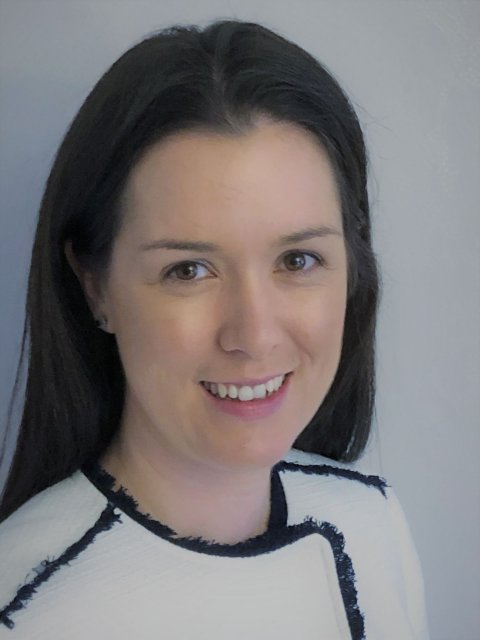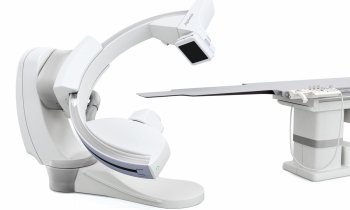Article • Gender issues
Promoting equity for women in cardiology in the UK
More women should become cardiologists. Male dominance and negative and sexist comments must end. Recognising these problems, the British Cardiovascular Society (BCS) aims to create a national network of mentors and female role models and provide resources and support to this cause. In a powerful session ‘Women in Cardiology – Building a Healthy Culture’ at the BCS online congress, delegates heard that female medical students are discouraged from entering cardiology by comments from consultants and fellow trainees and fears that their male counterparts ‘would not take them seriously’.
Report: Mark Nicholls

Dr Rebecca Dobson, a consultant cardiologist at Liverpool Heart and Chest Hospital, highlighted reasons for the underrepresentation of women in cardiology including a lack of female role models and mentors, but also a lack of resources for women who may have particular needs during pregnancy, maternity leave, or their return to work after a period of absence. Whilst there have been various initiatives over the years, she noted little progress and that sexual harassment and widespread negative attitudes and behaviour remain at unacceptable levels in UK cardiology.
With his medical student daughter, Emma, consultant cardiologist and BSC council member Dr Derek Harrington shared personal experiences. Emma, who has completed her medical studies, spoke of her experiences in a workplace environment dominated by ‘white, middle-aged men’, where people never asked questions about her, but made ‘huge assumptions based on gender alone’. This, she said, impacted on her career choices; cardiology – a male-dominated specialty – was not a preferred career choice – and referred to teaching styles, a lack of relevant role models and the feeling that she ‘would not be taken seriously by male counterparts’. ‘I’m not saying that cardiology is causing the problem,’ she said, ‘but it appears to be exaggerating it. Therefore, it’s so important that the specialty leads the way in making the change.’
She would like to see male cardiologists show female students what they love about the specialty and make them feel welcome within it. ‘They should also acknowledge the huge progress to be made; encourage women to speak about their experience and, most importantly,’ she added, ‘take them seriously and make change when they do.’
New momentum

Image source: Shutterstock/Gal Amar
Her father conceded he had not fully considered the gender issue throughout his career, until it was raised at a BCS council meeting, and also discovering his daughter’s experience. He now believes the BCS must take a ‘radical approach’ and look at its own gender balance. ‘If you have a specialty dominated by men, then the professional society will be dominated by men,’ he pointed out. ‘The majority of committee members are men. We need to actively address that imbalance.’
Figures suggest that the percentage of women in cardiology has increased to 28% trainees and 13% consultants (from 16.8% and 7.4% respectively) but remain among the lowest when compared to other medical specialties in the UK. This has meant the specialty is not tapping into the available talent pool, but Dobson also warned that, if real change is to be achieved, men also need to be part of the conversation.
Dobson acknowledged that making a difference for women is ‘a tall order’. The initiatives include engaging with students and junior doctors at an early stage by developing ways to attract women into cardiology; providing better information; supporting women in cardiology by championing changes in working practice that promote equity. ‘We want to facilitate the creation of a community of female cardiology trainees and consultants across the UK,’ Dobson underlined. ‘In addition, the BCS is creating a dedicated Women in Cardiology Chapter devoted to dealing with issues that are of concern to its members. We’re keen to enable a professional network for women in cardiology at a regional level to advocate for professional needs and development for women in the specialty.’
An executive committee formed from BCS and affiliated groups will oversee these initiatives. Other developments will see online resources expand, mentorship and leadership training for women within the specialty made available and a working group established to offer support for women working in cardiology and those who are pregnant or considering starting a family.
Recommended article

Video • 'Women in Focus' at ECR
Getting to the top, staying feminine
Women continue to lead a rather marginal existence in medicine. Although there are now more female than male medical students, professorships and directorships are almost exclusively held by men. This imbalance was addressed with the lecture series ‘Women in Focus’ at the 2019 European Congress of Radiology (ECR).
A “radical approach” is needed
BCS President Simon Ray and immediate-past President Dr Sarah Clarke, who chaired the session, have a strong interest in the subject. Clarke remarked that she was particularly keen to lose the title of ‘the only female president in the society’s history’, inferring she would like to see another woman in the post before long.
The session also heard from American College of Cardiology President Dr Dipti Itchhaporia, who underlined the importance of building a diverse team with different viewpoints. Other factors to consider, she said, are educating and empowering that team, creating a culture of wellness within it, and leading by example in terms of wellness.
Profile:
Dr Rebecca Dobson is a Consultant Cardiologist with a Special Interest in Imaging and Cardio-Oncology at Liverpool Heart and Chest Hospital and BCS council member for Women in Cardiology. Her clinical interests include chemotherapy-induced left ventricular systolic dysfunction, cardiac disease in the cancer patient, and heart valve disease. Her research focuses on cardio-oncology and carcinoid heart disease.
15.07.2021











